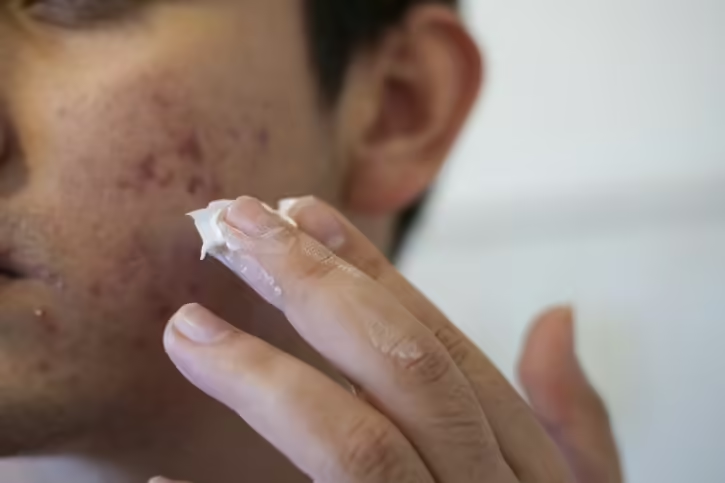
High Benzene Levels Detected
Recent research involving 111 products from major U.S. retailers has revealed unacceptably high levels of benzene—an established carcinogen—present in many benzoyl peroxide (BPO) treatments for acne and rosacea. The study indicates that these products not only degrade at room temperature but also produce benzene when exposed to heat and ultraviolet (UV) light.
Stability Concerns for BPO Products
The findings highlight a critical issue: many topical BPO products become unstable and generate benzene under common storage conditions. Benzoyl peroxide, when stored improperly, can break down and form harmful benzene, especially when left at room temperature or exposed to sunlight. Stabilization techniques like encapsulation have proven ineffective in preventing this degradation, raising significant safety concerns.
Recommendations for Refrigeration
Dr. Christopher G. Bunick, co-investigator and dermatologist at Yale University, suggests refrigerating BPO products as a practical solution to minimize benzene exposure. “Our research demonstrates that BPO products can generate benzene at typical room and store shelf temperatures,” he stated. He emphasizes the need for refrigeration throughout the supply chain, from manufacturing to consumer use, to limit risks.

Implications for Public Health
Lead investigator David Light from Valisure, LLC, warns that the discovery of benzene formation in BPO products poses a serious public health risk. Consumers using these widely available products may be unknowingly exposing themselves to high levels of benzene, particularly under everyday environmental conditions. This underscores the necessity for rigorous independent testing to ensure consumer safety.
Expert Opinions on Regulatory Measures
Experts in dermatology are calling for more stringent regulations regarding BPO products. Dr. Richard L. Gallo from UC San Diego notes that this study confirms the presence of benzene in BPO-containing skincare products and stresses the importance of further research to assess the potential cancer risks associated with their use. Dr. Steve Xu, also a dermatologist, highlights the growing concern over lightly regulated personal care products and their implications for public health.
Conclusion
As concerns regarding benzene in benzoyl peroxide treatments grow, experts advocate for better regulatory measures and consumer education. The study published in the Journal of Investigative Dermatology emphasizes the critical need for safety protocols in the formulation and storage of these commonly used acne and rosacea treatments.
Reference: “Evaluation of Benzene Presence and Formation in Benzoyl Peroxide Drug Products,” Kaury Kucera et al., Journal of Investigative Dermatology, 7 October 2024.


